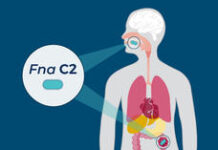An analysis conducted among persons from two independent study cohorts, BioBank Japan and the Hospital-based Epidemiologic Research Programme at Aichi Cancer Centre tested for an association between variants in cancer-predisposing genes and the risk of gastric cancer and then evaluated the combined effect of pathogenic variants and Helicobacter pylori infection status on gastric cancer risk. In this large-scale evaluation of patients with different clinical and demographic characteristics, in addition to BRCA1 and BRCA2, 7 other genes (APC, ATM, CDH1, MLH1, MSH2, MSH6, and PALB2) had pathogenic variants associated with the risk of gastric cancer. Furthermore, pathogenic variants and Helicobacter pylori infection interacted to markedly increase the risk of gastric cancer in persons with both risk factors.
The Japanese and Australian researchers, led by Dr. Yukihide Momozawa of the Laboratory for Genotyping Development, RIKEN Center for Integrative Medical Sciences in Yokohama, who published the findings on 30 March 2023 in The New England Journal of Medicine, wrote that their results suggest that in persons known to carry a pathogenic variant in a homologous recombination gene, evaluation and eradication of Helicobacter pylori infection may be particularly important.
Helicobacter pylori has been classified as a group I carcinogen and is an environmental risk factor for gastric cancer. Tailored surveillance and eradication of Helicobacter pylori are recommended for controlling the incidence of gastric cancer. Germline pathogenic variants in cancer-predisposing genes are also essential factors in tailored surveillance and prevention of gastric cancer. Families with hereditary diffuse gastric cancer meeting certain criteria are recommended for genetic testing, and carriers of pathogenic variants in CDH1 are considered for prophylactic gastrectomy.
The authors wrote in the background that they have recently found that germline pathogenic variants in BRCA1 and BRCA2 substantially increased the risk of gastric cancer. It has also been suggested that other cancer-predisposing genes, such as mismatch-repair genes, are associated with the risk of gastric cancer. However, with the exception of CDH1, the identification of variants in these genes are not included in screening recommendations.
A randomised, controlled study showed that eradication of Helicobacter pylori reduced the incidence of gastric cancer, with effects seen even in persons with a first-degree family history of gastric cancer. However, because a family history generally involves shared genetic and environmental factors, it is unclear whether eradication was effective primarily in genetically susceptible persons or was effective regardless of genetic status. The study team speculated because gene–environment interactions are associated with an excess risk of disease that an evaluation of pathogenic variant carrier status and Helicobacter pylori infection status may be informative with respect to risk stratification.
The study team evaluated the association between germline pathogenic variants in 27 cancer-predisposing genes and the risk of gastric cancer in a sample of 10426 patients with gastric cancer and 38153 controls from BioBank Japan. They also assessed the combined effect of pathogenic variants and Helicobacter pylori infection status on the risk of gastric cancer and calculated the cumulative risk in 1433 patients with gastric cancer and 5997 controls from the Hospital-based Epidemiologic Research Programme at Aichi Cancer Centre.
Germline pathogenic variants in 9 genes (APC, ATM, BRCA1, BRCA2, CDH1, MLH1, MSH2, MSH6, and PALB2) were associated with the risk of gastric cancer. The study team found an interaction between Helicobacter pylori infection and pathogenic variants in homologous recombination genes with respect to the risk of gastric cancer in the sample from the Hospital-based Epidemiologic Research Programme at Aichi Cancer Centre (relative excess risk due to the interaction 16.01; 95% confidence interval [CI] 2.22 to 29.81; p = 0.02).
At 85 years of age, persons with Helicobacter pylori infection and a pathogenic variant had a higher cumulative risk of gastric cancer than non-carriers infected with Helicobacter pylori, 45.5% (95% CI 20.7 to 62.6) versus 14.4% (95% CI 12.2 to 16.6). The authors stated that these results suggest that the eradication of Helicobacter pylori infection in persons with a pathogenic variant would mitigate the risk of gastric cancer.
The authors concluded that persons with both a germline pathogenic variant in a homologous recombination gene and Helicobacter pylori infection had an excess disease risk as compared with persons who had either factor alone. They observed a significant additive interaction, although the multiplicative interaction was not significant. These results indicate that Helicobacter pylori infection modifies the risk of gastric cancer when germline pathogenic variants are present in homologous recombination genes. A possible mechanism underlying this excess risk is genome instability caused by Helicobacter pylori infection that contributes to gastric carcinogenesis.
In an accompanied editorial article, Anne Müller, PhD and Dr. Jiazhuo He of the Institute of Molecular Cancer Research, University of Zurich in Zurich, Switzerland wrote that it is remarkable that pathogenic variants in homologous recombination genes drive tumourigenesis only in the context of Helicobacter pylori infection. This observation has numerous implications, not only for the diagnosis, prevention, and possibly treatment of the fraction of patients of gastric cancer with pathogenic gene variants that arise due to Helicobacter pylori infection, but also for a better understanding of the biology of other cancers arising on a background of homologous recombination deficiency.
According to the editorialists, it is quite conceivable that other DNA damaging environmental factors contributing to human carcinogenesis have been overlooked. The latest study shows that it takes an enormous effort and access to well-annotated cohorts of tens of thousands of patients and healthy controls to unravel complex gene–environment interactions and that this effort, combined with careful well-resourced biobanking, pays off.
The study was supported by grants from the Japan Agency for Medical Research and Development, the Ministry of Education, Science, Sports, Culture, and Technology of Japan, the Ministry of Health, Labour, and Welfare of Japan, and from the Australian National Health and Medical Research Council.






